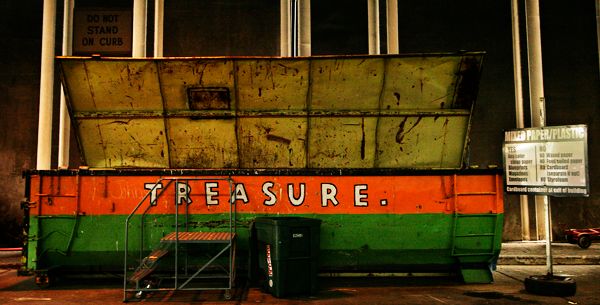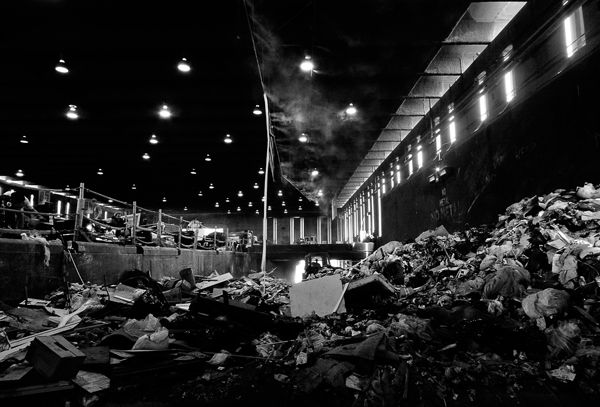One mans junk is another mans...

My neighbor Pat and I were sitting in line at the local garbage dump waiting to “dispose” of some scraps we had gathered from around his house (he’s remodeling) when we started talking about how both of us feel very saddened that we generate so much waste. Pat said he felt bad that he was creating all this waste and adding to the problem of overfull landfills, not to mention that the waste we were throwing away wouldn’t be going anywhere anytime soon since landfills are not generally built to regenerate waste for good use but designed more to bury it beneath the soil were it will sit for many years to come.
I told him I thought about what I was leaving behind for my kids (no, I don’t have any kids, still have to find a woman that will put up with me!). But despite all that talk, Pat and I still pulled up to the unloading bay, climbed into the back of his pickup and contributed to the over 220 million tons of waste we Americans create every year. That’s a lot of trash!
Personally I am ashamed to say that I am part of a general body of Americans that creates, on average, four pounds of waste a day. The real issue isn’t the waste we are creating today, but what we are doing with that waste and how it will most definitely affect our future and the future of our children. I don’t want to pass on a legacy of waste! I’m not advocating that we all stop buying things (although for some of you that might be a good idea), sell what we have and live in the forest taking what “mother earth” gives us. No, I’m not that idealistic on the matter of waste in the 21st century. But I do believe there are small steps that can be taken now that will greatly affect how we much waste we create and what we do with that waste. I listened to a very interesting series a few months back that the BBC put out called “A World Without Waste”. They talked about what different cities around the world were doing to take care of their waste problems. San Francisco came out in front with auspicious plans to have over 70% of the cities refuse being recycled and reused in the city within the next two years. I found the link to the BBC story on San Francisco’s waste solutions. If you have the time, give it a listen. You might find it gives hope to the growing problem of waste in the world. Here is the link: A World Without Waste.
Let me know if you found this entry helpful. I like to share passions with you from time to time and this is something I am growing passionate about.
Below you will find a picture I took at one of the local dumps here in Seattle.


0 Comments:
Post a Comment
<< Home